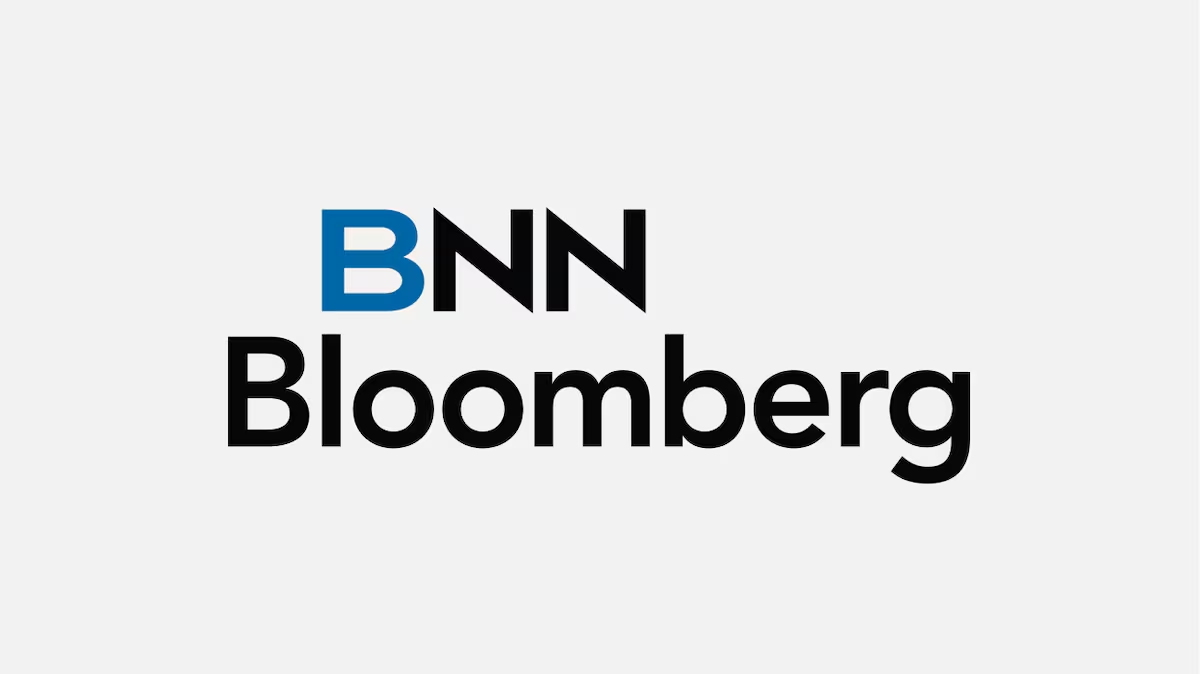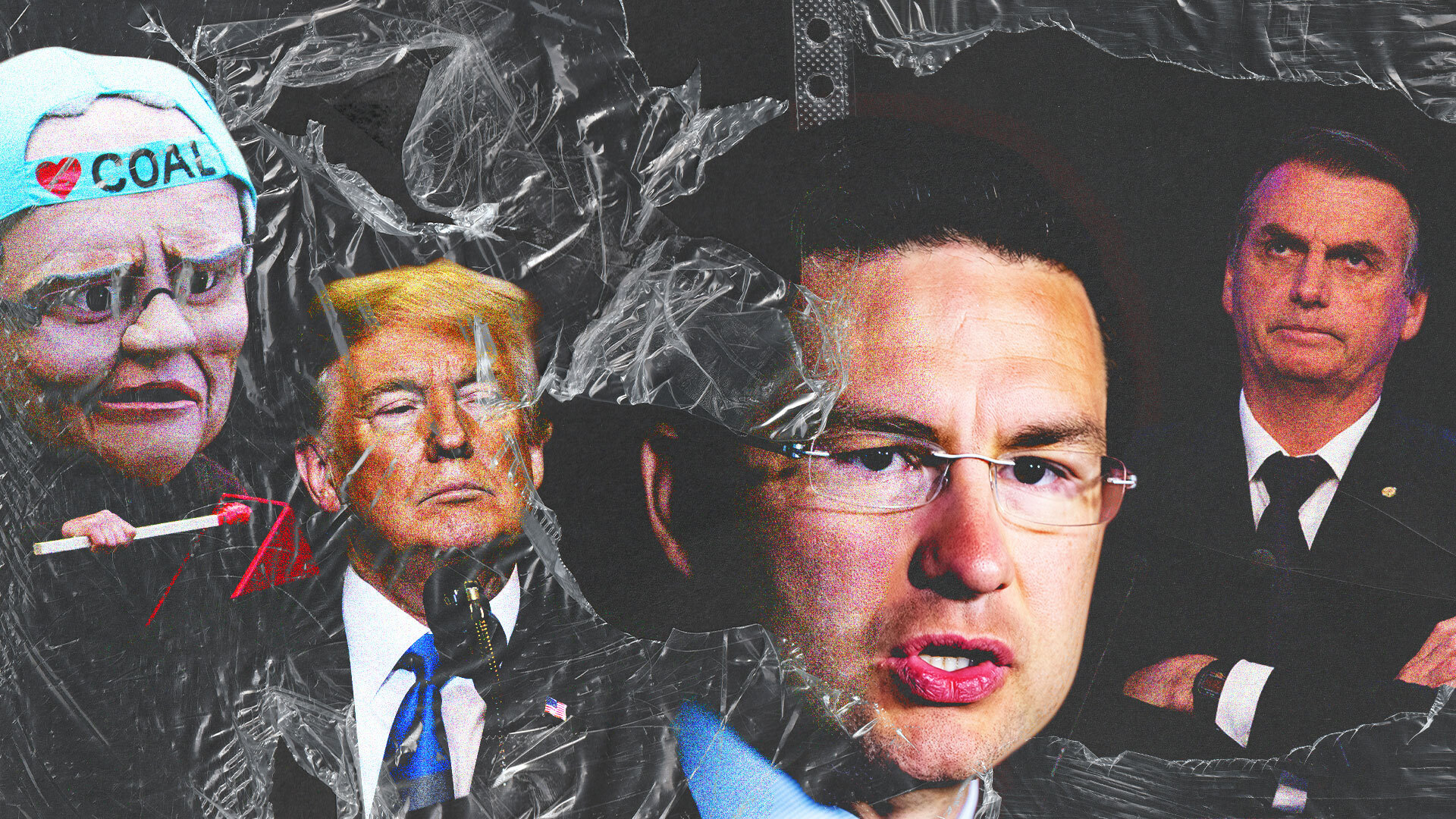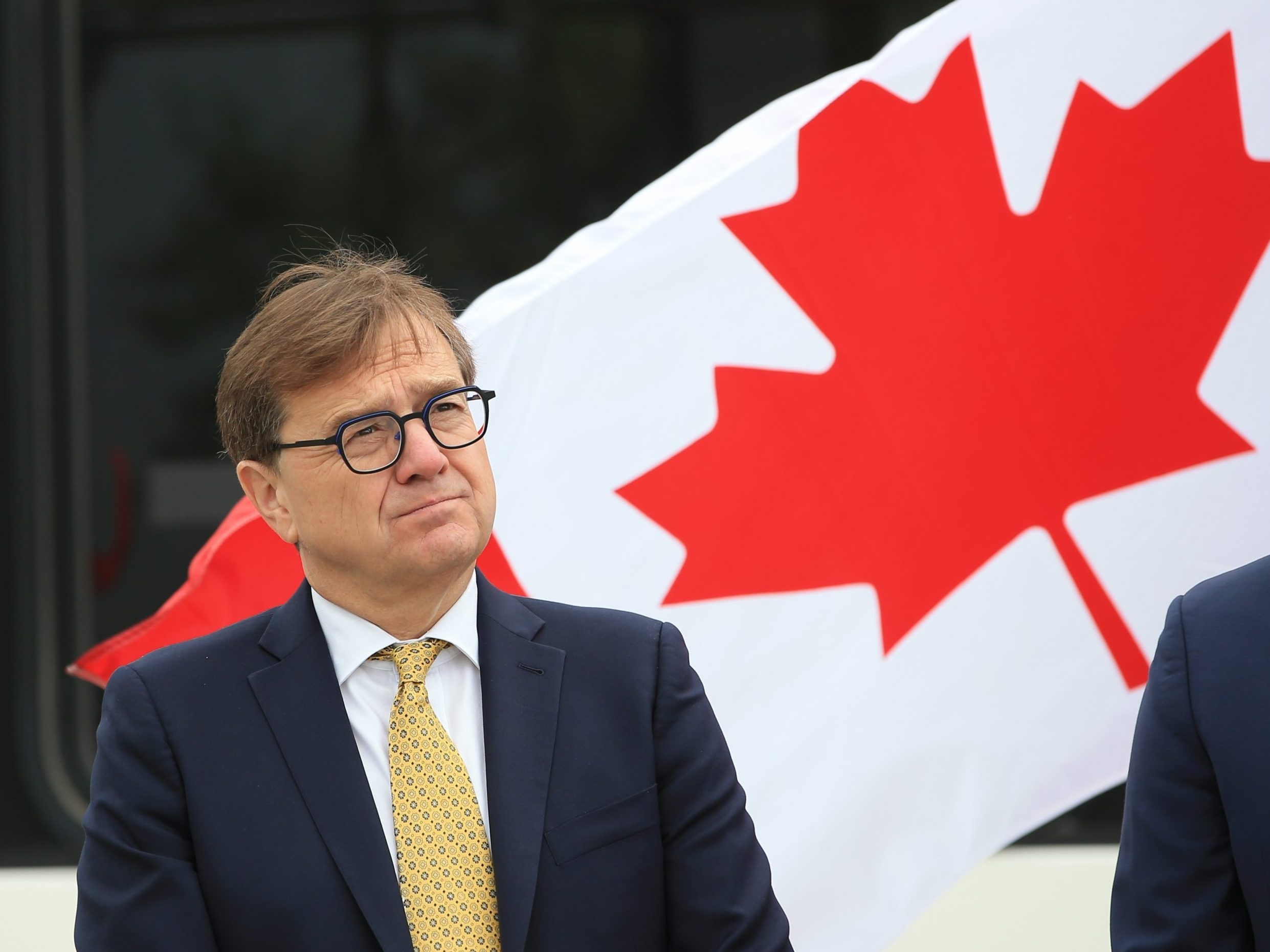Bill Morneau on Productivity
Apparently he is NOT of the opinion that the Budget will balance itself. Very Manleyesque.
A LIberal I could vote for if he can't sufficiently separate himself from Trudeau.
I wonder if he and Harper could do Canada a favour and find a rapprochement? Not necessarily in a direct political sphere but in a joint think tank or association?
Canadian businesses are losing ground, Bill Morneau says in new book
BILL MORNEAU
PUBLISHED YESTERDAY
FOR SUBSCRIBERS
In his new book Where to from Here: A Path to Canadian Prosperity, former Finance Minister Bill Morneau proposes a national agenda prosperity, and outlines why the Trudeau government has fallen short on execution when it comes to the economy.KELLYANN PETRY/THE GLOBE AND MAIL
401 COMMENTS
SHARE
BOOKMARK
LISTEN TO ARTICLE
Introduction by Andrew Willis
Before Bill Morneau became federal finance minister in 2015, the former Bay Street chief executive officer had to win over voters in some of the country’s poorest neighbourhoods in downtown Toronto.
Knocking on doors of families struggling to make ends meet, including recent immigrants scrambling to find housing and jobs, was a “reality check” that Mr. Morneau says he used as a touchstone during his five years in government, and in his post-political career. In an interview ahead of next week’s
launch of his book,
Where To From Here: A Path To Canadian Prosperity, the 60-year-old said his overarching goal as a politician was improving the country’s anemic economic performance, for the benefit of all Canadians. This year, he takes up that same ambition as an author.
Opinion: Bill Morneau’s talents were wasted in Justin Trudeau’s Ottawa
Health care spending is unsustainable, former finance minister Bill Morneau says in new book
“My time in government was an enormous learning opportunity, five years that felt like doing a PhD in international economics,” said Mr. Morneau, who holds an MBA. “Now I want to start a conversation on the serious economic issues facing the country, at a pivotal time for Canadian business.”
In his book, Mr. Morneau makes it clear Prime Minister
Justin Trudeau never shared his focus on taking care of business, which he credits as a key factor in his decision to resign in 2020. He details also the cut-and-thrust of partisan politics – Conservative leader
Pierre Poilievre’s ears will be burning – and outlines plans to fix what ails the health care system, balance trade with human rights, and wean the economy off fossil fuels.
However, the theme that recurs over 325 pages is that Canadian businesses are losing ground – becoming increasingly less productive – and that governments of all stripes need to up their game in order to maintain, let alone enhance, our standard of living. Mr. Morneau’s turnaround strategy includes recruiting CEOs, Indigenous leaders and academics for a prosperity council, similar to groups that have boosted growth in Australia, Chile and France. He also advocates for a Canada growth fund to augment business investment – and the federal government announced a program along these lines in its last budget.
In this excerpt from
Where To From Here, edited for length, Mr. Morneau sets out an agenda for prosperity, and explains why the
Trudeau government falls short on execution when it comes to the economy.
One reason I took to the idea of running for office in 2015 was Canada’s slumping economic performance. I was attracted to the possibility of applying my business skills and experience to help make a difference in critical problem areas such as our response to climate change, reconciliation with our Indigenous population, and the need for a national child care program. All of these, to one extent or another, could only be fully addressed if we had the funds to invest in them. So dealing with our economic objectives, in my mind, had to be a key priority.
Canada’s economic growth had been stalled for two decades or more, and it needed to be resuscitated. According to the OECD, Canada had been outpaced in the recent past by 138 countries including Australia, Mexico, New Zealand and the U.S. While growth had been sluggish through the Stephen Harper years, this was not a partisan issue. In my mind, it was a fundamental problem needing immediate attention.
It wouldn’t be easy to solve. The policies needed to pull us out of our economic doldrums would be hard to implement and involve significant expense. They would also require a clear focus, strong discipline and a willingness to collaborate in new ways. That’s a formidable shopping list.
STORY CONTINUES BELOW ADVERTISEMENT
On the upside, we accomplished some important things from 2015 to 2020, highlighted by the Canada child benefit, expansion of the Canada Pension Plan and the launch of a national approach to pricing carbon. Despite all we achieved, we didn’t do nearly enough to stimulate economic growth, however. This is not surprising, perhaps, because restoring Canada’s economic performance wasn’t a major plank in our election platform. A talking point, yes. But it needed to be more than that.
Let’s be brutally honest: with all the national attributes our country has been gifted, we shouldn’t be lagging behind so many other nations with similar levels of industrialization and development – we should be at the head of the class.
That realization prompted me in 2016 to create the Advisory Council on Economic Growth. The council did some significant work, drawing attention to the importance of immigration and its impact on our demographics; identifying key economic sectors where Canada held a competitive advantage; focusing on how we could stimulate lagging private sector investment with ideas like the Canada Infrastructure Bank; advocating for the expansion of international trade in Asia, where growth was likely to continue; and pushing for a focus on skills development and training.
As happens so often in political life, the ideas were good but their application proved a challenge. Building and renewing infrastructure demanded a large amount of capital and extended time frames to complete projects, plus provincial and municipal buy-in. On the international front, our strategy to expand trade opportunities with China ran up against hard-nosed geopolitical realities, and implementing other promising initiatives encountered obstacles that couldn’t be easily sidestepped.
The focus on economic renewal deserved to be sharpened and directed by the prime minister, but it was not. I was prepared to play any meaningful role to reach the goal, but responsibility for economic growth cannot be delegated to the finance minister alone. It requires attention at the very top. In my view neither the PM nor the Prime Minister’s Office saw the need to address our anemic growth record as a first priority, despite a raft of statistics confirming it and the need to treat it as a priority.
From the end of the Second World War to the mid-1970s, few countries exceeded Canada’s rate of economic growth. As one measure, the weekly earnings of Canadians grew at an average of 2.54 per cent annually over that period after accounting for inflation, more than doubling our earned income. Pretty impressive, but from 1982 to 2019, our country’s real GDP rose an average of just 1.3 per cent annually, which is not impressive at all.
The slump is directly related to a downward trend in productivity growth over those years. Out of 36 countries in the Organization for Economic Cooperation and Development (OECD) measured from 2000 to 2019, Canada rated in 25th place when it came to productivity growth. Assessing real output per hour worked, we were less than mediocre in comparison with similar OECD nations: 10 per cent lower than the U.K., 22 per cent lower than France and Germany and a giant 27 per cent lower than the U.S., our best partner and our biggest competitor.
One reputable study noted that Canada’s productivity from 2000 to 2019 grew at an average of 0.9 per cent annually, half the annual rate it had grown over the years from 1961 to 2000. Had we maintained the same productivity growth from 2000 on, the average annual income for Canadian workers in 2019 would have been about $13,550 higher. That’s pocketbook proof that greater productivity benefits everyone.
Improving productivity is not about maximizing our labour force participation, as important as that may be. Increasing the labour force helps promote growth, but it doesn’t necessarily improve productivity. Nor should our goal be about working harder or working with fewer people to do the same amount of work. It’s about working smarter, which is not the same thing at all. The best way to elevate labour productivity in the 21st century is through the application of technological advances and ensuring the ability of the labour force to adapt to them.
It is impossible, on a long-term basis, for any society to earn or spend more than the value of whatever they produce, whether goods or services. That’s a basic rule that one doesn’t need an economics degree to understand. All you need to grasp the idea is your experience at balancing your household budget. The key to long-term prosperity is productivity, and the reality of our aging demographics will make it ever more important over the coming years.
Rather than maintaining the age of retirement, we should encourage older Canadians to remain in the labour force as long as they choose. Why should we discard their talents, experience and contribution? Those are enormously valuable assets. We need to ensure people have an incentive to continue working while their health and interests favour it, and we should encourage them to apply their skills to the job of expanding Canada’s wealth generating growth.
Improving our economic growth is not, and should never evolve into, a partisan issue. There is plenty of scope for partisan debate about the size and role of government and redistribution, but everyone should agree on the goal of raising our living standards through growth.
It was never difficult to convince business and industry groups of this perspective. Whatever their political tendencies might have been, they all grasped the importance and urgency of getting on with the job of improving Canada’s productivity. Yes, you could argue that self-interest was the motivation. But isn’t that the point of a capitalist market-based democracy? Wasn’t that how we got to the place where we could have one of the best lifestyles in the history of the world? I was always impressed by all the suggestions originating from those in the private sector who immediately saw the benefits awaiting us if we managed to hit some growth targets.
My challenge was building a consensus within the government on the urgency of the problem, and providing enough incentive to seriously tackle it. There is always an important short-term problem to be solved, a social problem that should be dealt with. Often I agreed, but the reality is that without the focus on growth, all of those other goals will be more difficult to achieve – we will be constantly fighting for our pet priority with more limited means. Breaking the cycle, to focus on growth first and programs after, is the leadership challenge.
We cannot do nothing and just assume we’ll muddle out of the situation. The world doesn’t work that way, nor has it ever.
So, what should we do?
Our first move must be to acknowledge that the problem exists and take steps to deal with it in response to the OECD projections on our future prosperity. Economic projections are not weather forecasts. The difference is that we can change the future, by taking the right decisions today and tomorrow. And creating our economic success is a duty no one else but us can assume.
Let’s also accept that there is no quick fix to the problem. We did not lose the economic success we enjoyed overnight. The slide was slow and incremental, and we were accompanied on the ride by other developed countries who saw their own productivity growth lose speed and momentum. Misery may love company, but that’s not the kind of company we need or want because on the ride down we dropped faster and further than the others.
I have spent considerable time on this topic because my years of experience in office convinced me that productivity improvement is the most important issue on our agenda, and we are not focused on it.
The implications of ignoring this aspect of Canada are more than significant – they are critical.
Without focusing on our economic growth to produce an improvement, we will not be able to engineer the energy transition process. Nor will we be able to seriously address the problem of polarization without expanding opportunities for everyone. Our next prime minister, reflecting on the key elements in the party’s platform, must consider economic growth as the most important goal of the federal government.
Absent that objective, every other policy initiative must be, by necessity, constrained.
Excerpted from
Where To From Here: A Path To Canadian Prosperity. Copyright 2023. Published by ECW Press. Reproduced by arrangement with the Publisher.



 bcbc.com
bcbc.com





:format(jpeg)/cloudfront-us-east-1.images.arcpublishing.com/tgam/3WZFAYFORBD3RENYELOJL4A5MY.JPG)



